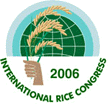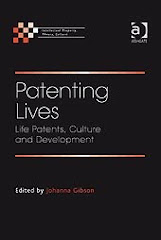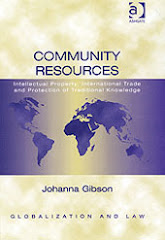 At the 2nd International Rice Congress 2006, held in Delhi last week, delegates considered whether patent protection presents a major obstacle to research and innovation.
At the 2nd International Rice Congress 2006, held in Delhi last week, delegates considered whether patent protection presents a major obstacle to research and innovation.The international event attracted scientists from around the world concerned with research and development contributing to food security, alleviating poverty, and enhancing economic and social development.
Areas of interest included genetic enhancement and development of seeds compatible with environmental conditions in developing countries, as well as technologies in production and storage and sustainability. In addition, the Congress also addressed related commercial and research industr
 y concerns, including creating markets for rice, use of information and communication technologies (ICT), and public-private partnerships.
y concerns, including creating markets for rice, use of information and communication technologies (ICT), and public-private partnerships.At the recent meeting, farm ministers from China, India, Indonesia, Laos, Nepal, Pakistan, the Philippines, Sri Lanka, and Vietnam, signed an accord for multilateral cooperation on these issues.
However, patent monopolies remain on the agenda as a significant obstacle to research and to the achievement these aims. Reporting on the Congress, Ashok Sharma notes in the Indian newspaper, the Financial Express, "rice scientists are likely to face major hurdles in moving towards their goal." The report notes the monopoly control of Syngenta in this area of agricultural production, and criticises the company's action in "seeking global patent rights over thousands of gene sequences." The article suggests that this is comparable to ownership of "the world's most important staple crop." Although strictly speaking, such patentability is tied to the identification of the gene sequence's function, this nevertheless raises the issue of classical interpretation leading to the consequences of a gene sequence in effect being subject to a monopoly. And indeed, this is what Sharma is suggesting, in arguing that Syngenta is attempting to extend monopolies over all uses on the basis of one use - thus, in effect, achieving a monopoly.

Also speaking at the Congress was Robert S Zeigler (pictured at right), of the International Rice Research Institute (IRRI) as well as a member of the International Advisory Board of Biotec. Biotec is one fo the centres of the National Science and Technology Agency (NSTDA), Thailand. Zeigler argued against the patenting of germplasm, maintaining that, while final products could be patentable, basic research tools should not be. Although Sharma expresses concern that this might not be possible, if a purpose-bound approach is pursued, the potential for relevant patent protection in gene technologies is available.
On this issue, the European Commission recently adopted a second report to the European Parliament on the Biotechnology Directive. The report is concerned with the implications of patent law in biotechnology and genetic engineering, including patents relating to gene sequences and stem cells. In particular, the report considers the "scope of protection" and the need or otherwise for a more limited "purpose-bound" approach to protection. Although not taking a position in the report, the issue nevertheless remains relevant to the Commission not only in a legal context, but also in an economic one, in that Member States have taken varying approaches to the interpretation of so-called gene patents. France and Germany both rely on purpose to limit the interpretation of patents in some technologies this area.
Also considered at the Congress was the impact of GM on international markets and the complexity of trade, as reported in another article in the Financial Express. Issues relating to food safety and certification were significant to the discussions, particularly in the light of the recent US GM rice contamination (see recent Patenting Lives posts, US Farmers to Sue Bayer, European Standing Committee Considers Rice Contamination, More Trouble for US Rice Industry, Japan Lifts Rice Ban, and Russia Suspends US Ric
 e). And the fall-out from this contamination continues. In a press release from GE Free NZ, activists are urging the Ombudsman to become involved in New Zealand, in response to a rejection by the New Zealand authorities of calls to test for the contaminating strain, LLRICE601.
e). And the fall-out from this contamination continues. In a press release from GE Free NZ, activists are urging the Ombudsman to become involved in New Zealand, in response to a rejection by the New Zealand authorities of calls to test for the contaminating strain, LLRICE601.The International Food Policy Research Institute (IFPRI) will be hosting a Policy Seminar, "Distributional Effects of WTO Agricultural Reforms in Rich and Poor Countries," which will be considering some of these issues in food security and market concerns. The seminar will be held at the offices of IFPRI, Washington DC, 2 November.



No comments:
Post a Comment